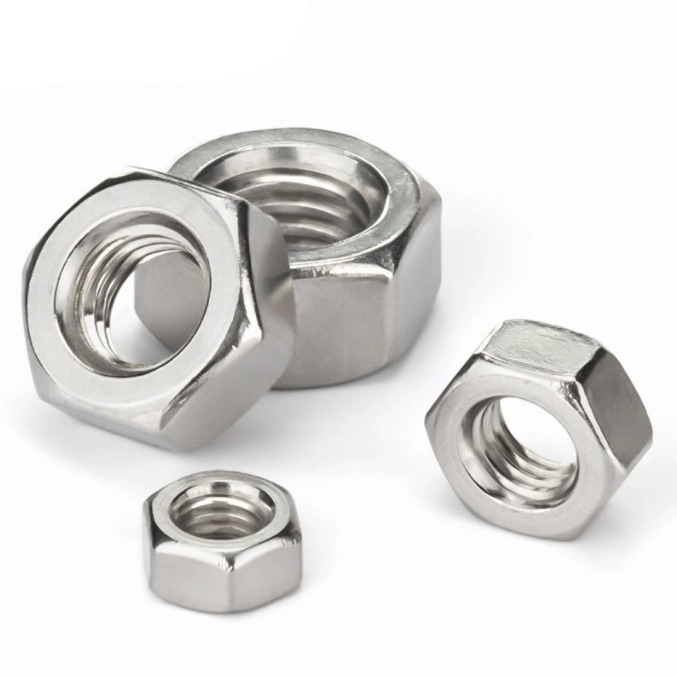

High Strength Bolt for Enhanced Performance in Industrial Applications
Dec . 25, 2024 19:36 Back to list
High Strength Bolt for Enhanced Performance in Industrial Applications
High Tensile Stud Bolts Key Components in Engineering
High tensile stud bolts are crucial fasteners widely used in various engineering applications. They are known for their strength, durability, and ability to withstand high levels of stress and strain. In this article, we delve into the characteristics, applications, and advantages of high tensile stud bolts, emphasizing their significance in construction and industrial settings.
Characteristics of High Tensile Stud Bolts
High tensile stud bolts are typically made from high-grade alloy steels, which are engineered to provide superior tensile strength. The classification of these bolts is largely based on their yield strength and tensile strength, with many high tensile bolts boasting yields of 700 MPa or more. This strength makes them particularly suitable for applications where high pressure or heavy loads are involved.
The design of high tensile stud bolts often includes a threaded shaft, which allows for secure fastening and adjustments. The threads can vary in pitch and diameter, catering to different mechanical and structural requirements. Additionally, the surface treatment of these bolts—such as galvanizing, anodizing, or coating—enhances their resistance to corrosion, thereby prolonging their lifespan even under harsh environmental conditions.
Applications in Various Industries
High tensile stud bolts play a vital role in numerous industries, including construction, automotive, aerospace, and manufacturing. In the construction industry, they are often used in steel structures, bridges, and high-rise buildings, where they provide the necessary support and stability. Their strength ensures that structural integrity is maintained, even in challenging conditions.
high tensile stud bolt

In the automotive sector, high tensile bolts are utilized in engine components, suspension systems, and chassis assembly. Their ability to endure the vibrations and stresses of movement makes them an ideal choice for such applications. Similarly, in aerospace engineering, where weight and strength are critical factors, high tensile stud bolts ensure the performance and safety of aircraft components.
Advantages of High Tensile Stud Bolts
One of the primary advantages of high tensile stud bolts is their exceptional strength, which allows them to handle heavy loads and dynamic forces without failure. This makes them a preferred choice in critical applications where safety is paramount. Additionally, their resilience against wear and fatigue significantly reduces maintenance costs and the frequency of replacements, leading to greater efficiency in projects.
Another notable benefit is the versatility of high tensile stud bolts. They can be manufactured to specific dimensions and strengths, making them adaptable to a wide range of applications. Whether it is for heavy machinery, structural assemblies, or specialized equipment, these bolts can meet diverse engineering requirements.
Finally, the use of high tensile stud bolts contributes to improving overall project timelines. The ease of installation, combined with their reliability, allows for faster assembly and construction processes. This efficiency translates into cost savings and timely project completion, an essential factor in today's competitive market.
Conclusion
High tensile stud bolts are an integral component in modern engineering and construction. Their strength, versatility, and reliability make them indispensable in various applications across multiple industries. As technology advances and the demands for structural integrity and performance increase, the role of high tensile stud bolts will continue to expand. Engineers and manufacturers alike recognize the significance of these robust fasteners, making them a staple in the design and implementation of safe and efficient systems. Understanding the properties and applications of high tensile stud bolts is essential for anyone involved in engineering and construction, ensuring the successful execution of complex projects with confidence.
Latest news
-
Hot Dip Galvanized Bolts-About LongZe|High Strength, Corrosion Resistance
NewsJul.30,2025
-
High-Strength Hot Dip Galvanized Bolts - Hebei Longze | Corrosion Resistance, Customization
NewsJul.30,2025
-
Hot Dip Galvanized Bolts-Hebei Longze|Corrosion Resistance&High Strength
NewsJul.30,2025
-
High-Strength Hot-Dip Galvanized Bolts-Hebei Longze|Corrosion Resistance&High Strength
NewsJul.30,2025
-
Hot Dip Galvanized Bolts-Hebei Longze|Corrosion Resistance&High Strength
NewsJul.30,2025
-
Hot Dip Galvanized Bolts - Hebei Longze | Corrosion Resistance, High Strength
NewsJul.30,2025

